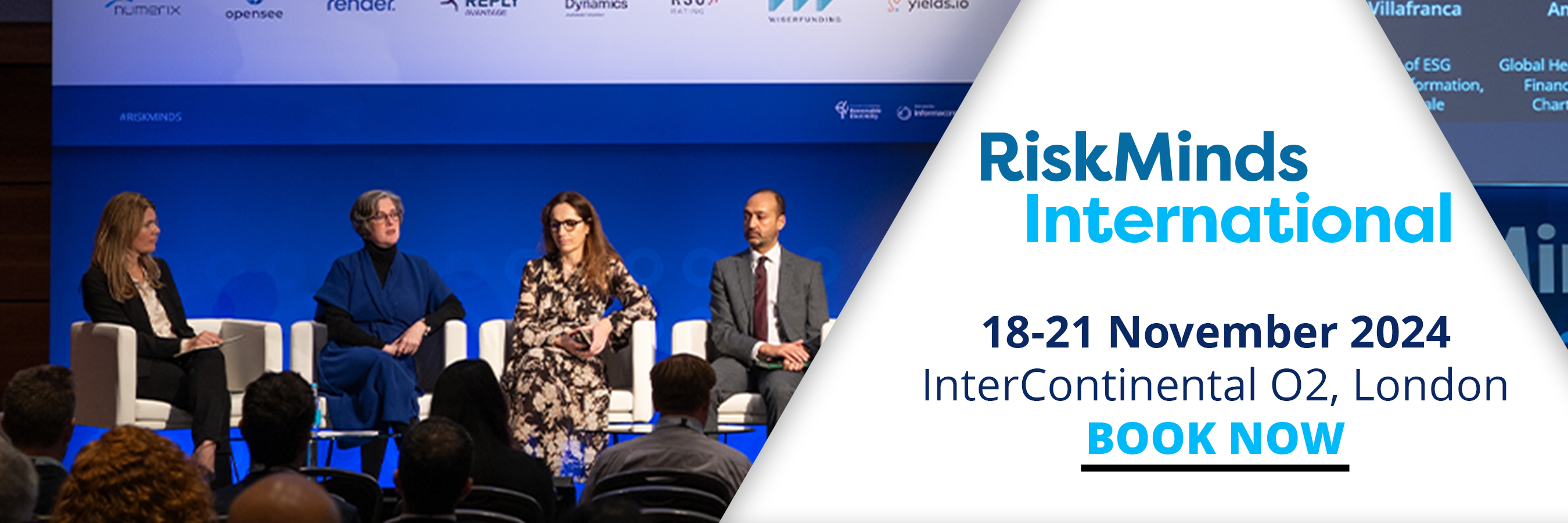ESG and ethics: What makes an ethical business?

How can risk and compliance leaders build trust, become more sustainable, increase transparency, and support their staff and customers while also serving the business’ interests? At RiskMinds International, we followed the conversations of a panel on the Conduct and Compliance Summit to find out about the nuance of navigating this fine line.
“ESG is dead,” claimed an FT article “I saw last month,” said one of the panellists.
But is it? Or does it simply need to evolve, and perhaps separate into its constituent Environmental (E), Social (S) and Governance (G) parts, as it becomes embedded in the compliance function at financial institutions (FIs)?
Held under the anonymised Chatham House rules, practitioners from Swiss Re, ICBC Standard Bank and Crédit Agricole CIB, formed a sustainability and compliance panel at the InterContinental O2 Hotel in London, to debate how to be ethical, while still remaining profitable.
“In my opinion the E element is very different to the S and the G. I see them as segregated pillars,” said one of the panellists, referencing the aforementioned FT article. He sees ESG as more in transition at the moment, rather than dead, and in need of evolving to aid profitability and remain relevant as it embeds itself into FI compliance functions.
“It’s a journey,” continued the panellist, advocating for more granularity. “I feel we’re at the end of ESG’s first iteration, which has been about disclosure, targets, and reporting. We’re now moving as an industry towards addressing what type of business we want to be in the future.”
“For instance, we’ve a commodities business that deals in mining, energy and so on. We invest in and finance precious metals mining companies, seeking nickel and so on, because we know they are vital in the transition towards a green economy. They make the green machines, electric batteries and so on that we need. But we don’t deal in coal. Each bank must decide for themselves what is best [and ethical].”
It makes sense for ESG to become part of FI compliance functions as decarbonisation and net zero targets hove into view – not to mention younger investors’ concerns about social well-being, and their desire for good governance and conduct. Other panellists argued ESG doesn’t need to evolve quite so much, with one claiming “it’s already part of our DNA” and “ensures we do business in the right way.”
Long-term profits can accrue in this way too, as ESG does tend to encourage a longer term investment viewpoint. Financing fossil fuel projects may give a short-term – indeed often a higher – premium return at present, as they are emitters that damage the environment their capital costs more. But this calculation will change over time as the ‘green economy’ transition escalates.
Greenwishing
A debate about greenwashing and ‘greenwishing’, where companies’ good intentions aren’t meant, ensued. If ESG actually hinders here in the aggregated score it applies was also debated. The advocate for segregated pillars certainly thought it did.
“We don’t punish ‘greenwish’ clients who have good intentions, but don’t meet their targets due to external factors like Covid or war,” said one of the panellists, who advocated working with clients to help them become more sustainable.
Other challenges: Competing regulations & conduct
There are of course other non-ESG challenges that compliance and conduct heads at FIs face if they want to become ethical companies, such as conduct risk – and they too were debated at the panel in London. To the fore were:
- Jurisdictional issues: Competing regulations can be a problematic issue and global standardisation would be beneficial.
- Technical & technology challenges: Such as how you handle embedded derivatives, and account and report them in different regions were also discussed, alongside if data quality was good enough – and if artificial intelligence (AI) could help mine datasets more effectively.
- Geographical challenges: Not all regions recognise western financial instruments, such as an FX forward, so other more traditional banking instruments might be needed instead. Be careful not to exclude them.
“Don’t be neglectful of other [non-ESG] factors,” commented a panellist, “and think about your credit, market, reputational, environmental risk and so on in a clear way – and address how they overlap in your risk frameworks.”
“Good culture drives good behaviour and good conduct,” continued the panellist. A good conduct risk framework will also ensure a whistle blowing mechanism doesn’t have to be used. It may also ensure that companies’ claims to be green are backed up because to do otherwise would not be considered good conduct.
